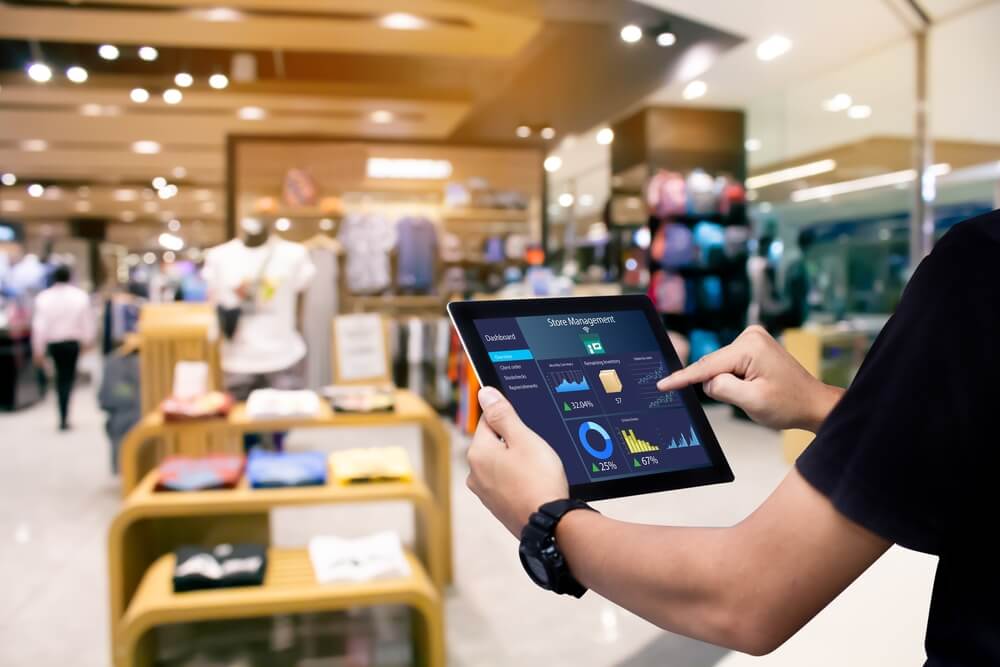Revolutionizing B2B Retail
With Salesforce Powered Solutions
In the realm of B2B retail operations, complexity and challenges are abound. From nurturing vital business relationships to efficiently managing inventory, the multifaceted nature of B2B retail operations demands robust solutions. In this blog post, we’ll delve into how Salesforce, in conjunction with having the right technical implementation partner, can help you to address some of the intricate challenges of managing B2B retail operations.
Understanding the Complexity of B2B Retail Operations:
Before we explore how Salesforce can be used to elevate your B2B retail operations, let’s dissect the intricacies of this space. B2B retail operations pose unique challenges due to their multifaceted nature, involving intricate supply chains, diverse customer relationships, and complex inventory management. Unlike B2C retail, B2B caters to a diverse array of business clients, including manufacturers, wholesalers, and franchisees, each with distinct needs and expectations. The necessity to maintain seamless day-to-day store operations, manage numerous supplier and wholesale relationships, ensure product quality, and navigate rebate programs further compounds the complexity.
These challenges demand efficient processes, real-time visibility, and robust tools, making B2B retail operations a demanding and multifaceted endeavor. To that point, let’s dig in a little deeper and look at several specific common challenges which we’ve seen over the years from working with B2B Retail teams.
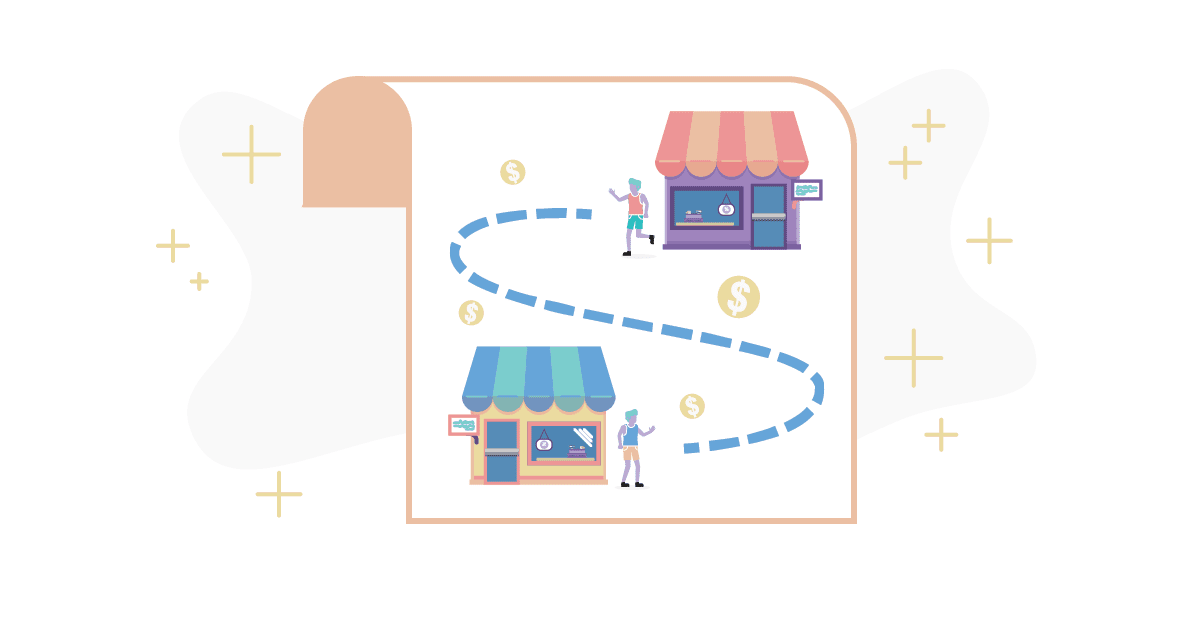
Store Operations Management:
Store Operations Management in the B2B retail operations space involves overseeing the day-to-day activities and processes within retail stores that cater primarily to direct customers. This includes managing inventory, ensuring product availability, optimizing staffing, tracking sales, and maintaining overall store efficiency. Challenges in this area stem from the complexity of managing diverse product lines, large-scale inventory, and meeting the specific needs of customers. Additionally, individual retail locations may struggle with data capture and sharing that data appropriately up to headquarters, necessitating the need for solid solutions to capture and share store analytics.
Salesforce solutions can address these challenges effectively. Salesforce’s CRM platform can be customized to track and manage B2B customer relationships, capturing data on their preferences and ordering patterns. Inventory Management solutions can help optimize stock levels and predict inventory needs by leveraging AI (artificial intelligence) and data analytics. Consumer Goods Cloud‘s AI-powered compliance tools can also help retailers to increase the accuracy of their store audits. This can help retailers to identify and address compliance issues quickly, avoiding costly fines and penalties.
Lastly, solutions around analytics can empower more real-time capture of sales related data and aid in aggregating this data across stores to provide a unified view of regional and national activity. In short, integrating these Salesforce-based solutions can provide real-time data and insights, enabling better decision-making and streamlining store operations management in the B2B retail space.
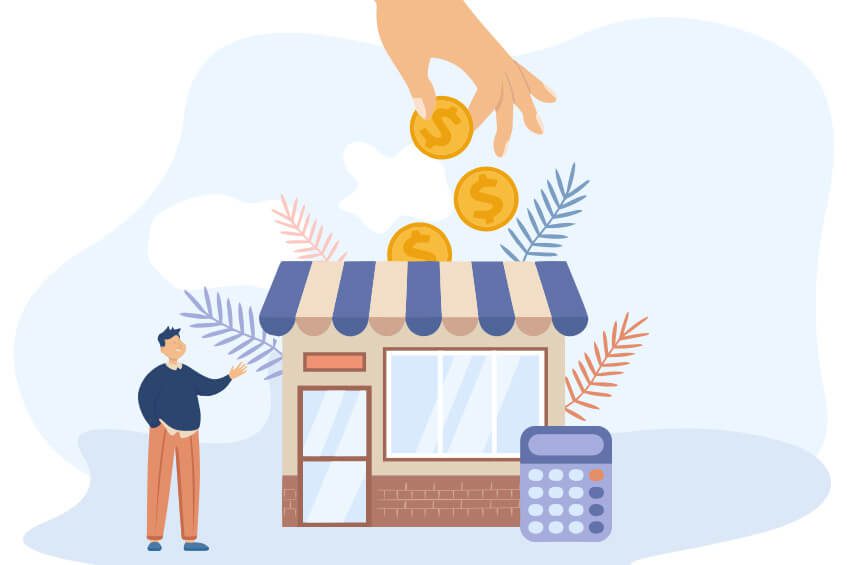
Wholesale Relationship Management:
Wholesale Relationship Management in the B2B retail operations space refers to the process of managing and nurturing relationships with wholesale partners, such as distributors, suppliers, and manufacturers. This includes activities like order processing, communication, contract management, performance tracking and B2B service request handling. It is essential for companies to maintain strong relationships with their wholesale partners to ensure a smooth supply chain and meet customer demands. However, managing these relationships can be challenging due to the complexity of B2B transactions, varying contract terms, and the need for real-time communication and collaboration.
Salesforce can play a crucial role in addressing these challenges. Salesforce Sales & Service Cloud platform can serve as a central hub for managing wholesale relationships by storing partner information, order history, communication logs and a B2B service portal. Salesforce Commerce Cloud can provide a platform for efficient order processing and integration with partner systems, ensuring timely order fulfillment. Additionally, Salesforce’s Einstein Analytics can be used for vendor performance tracking, allowing companies to accurately assess the effectiveness of their wholesale partnerships and make data-driven decisions. Salesforce’s cloud-based solutions facilitate real-time collaboration and data accessibility, streamlining Wholesale Relationship Management in the B2B retail sector and improving overall operational efficiency.
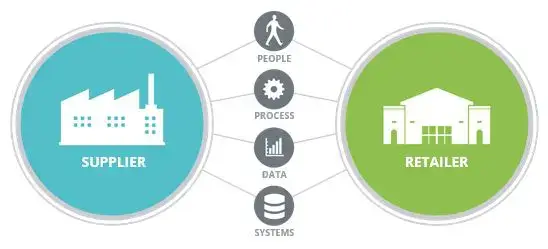
Supplier Relationship Management:
Supplier Relationship Management (SRM) in the B2B retail operations space involves the strategic management of relationships between a company and its suppliers. It encompasses various activities such as supplier selection, contract negotiation, performance monitoring, and collaboration to ensure a reliable and efficient supply chain. SRM is crucial for companies as it impacts the quality, cost, and availability of products, making it a critical aspect of B2B retail operations. However, managing these relationships can be challenging due to the diverse range of suppliers, varying contract terms, and the need for effective communication and collaboration.
SRM can be challenging for companies of all sizes to manage because it involves managing very complex relationships with multiple suppliers. It can be difficult to track supplier performance, identify areas for improvement, and negotiate contracts effectively– all in one place. To this point, the Salesforce platform can be leveraged to improve a lot of this by giving your team a single source of truth for Supplier Relationship details. For example, Salesforce’s Sales Cloud could be leveraged to track supplier performance, manage contracts, collaborate with suppliers on new projects, and even build a pipeline of potential suppliers to vet for future relationships. Likewise, Service Cloud can be used to manage customer support tickets and track supplier response times.
Lastly, Einstein Analytics can be used to generate insights from SRM data, such as identifying suppliers that are at risk of defaulting or suppliers that are providing the best prices. By using Salesforce products, B2B retailers can improve their SRM processes and reap the benefits of stronger supplier relationships, such as negotiating better prices and more agreeable terms.
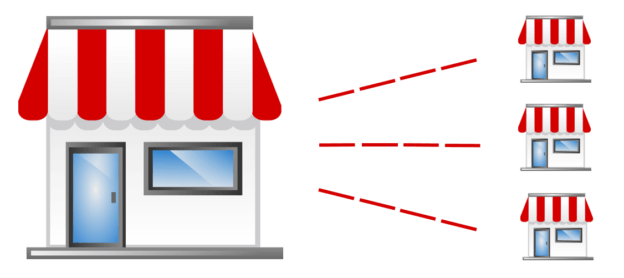
Franchise Relationship Management:
Franchise Relationship Management in the B2B retail operations space refers to the management of relationships between a parent company (or franchisor) and its franchisees. This includes activities such as franchisee onboarding, training, support, compliance monitoring, B2B marketing collaboration, and sales and service-related communication. Maintaining strong relationships with franchisees is vital for consistent brand representation, quality control, and overall success in the retail industry. However, managing these relationships can be challenging due to the decentralized nature of franchise operations, diverse franchisee needs, and the need for efficient communication and collaboration.
Salesforce can provide valuable solutions to address these challenges. For instance if you were to take an issue like tracking franchisee performance, you could use Salesforce Sales Cloud to aggregate and centralize key metrics across all franchises. For example, franchisors can create custom fields to track franchisee metrics such as sales revenue, customer satisfaction, and loyalty program participation. Franchisors can also use Sales Cloud and advanced analytics solutions like CRM Analytics to generate reports to track franchisee performance over time. This information can be used to identify franchisees that are performing well and areas where improvement is needed. Additionally, Salesforce’s ExperienceCloud can be used to create dedicated online portals for franchisees, offering access to resources, training materials, knowledge articles, and a space for collaboration and discussion.
Franchisees can also leverage Experience Cloud to submit a variety of requests back up to the parent franchise organization. Salesforce’s automation capabilities can streamline communication and reporting, ensuring that both franchisors and franchisees stay informed and compliant with brand standards, and leverage tools like Salesforce’s Account Engagement (formerly Pardot) to standardize marketing within the franchise network. By leveraging these Salesforce solutions, companies can enhance their Franchise Relationship Management, fostering stronger relationships with franchisees, and ensuring consistent brand representation across their network.
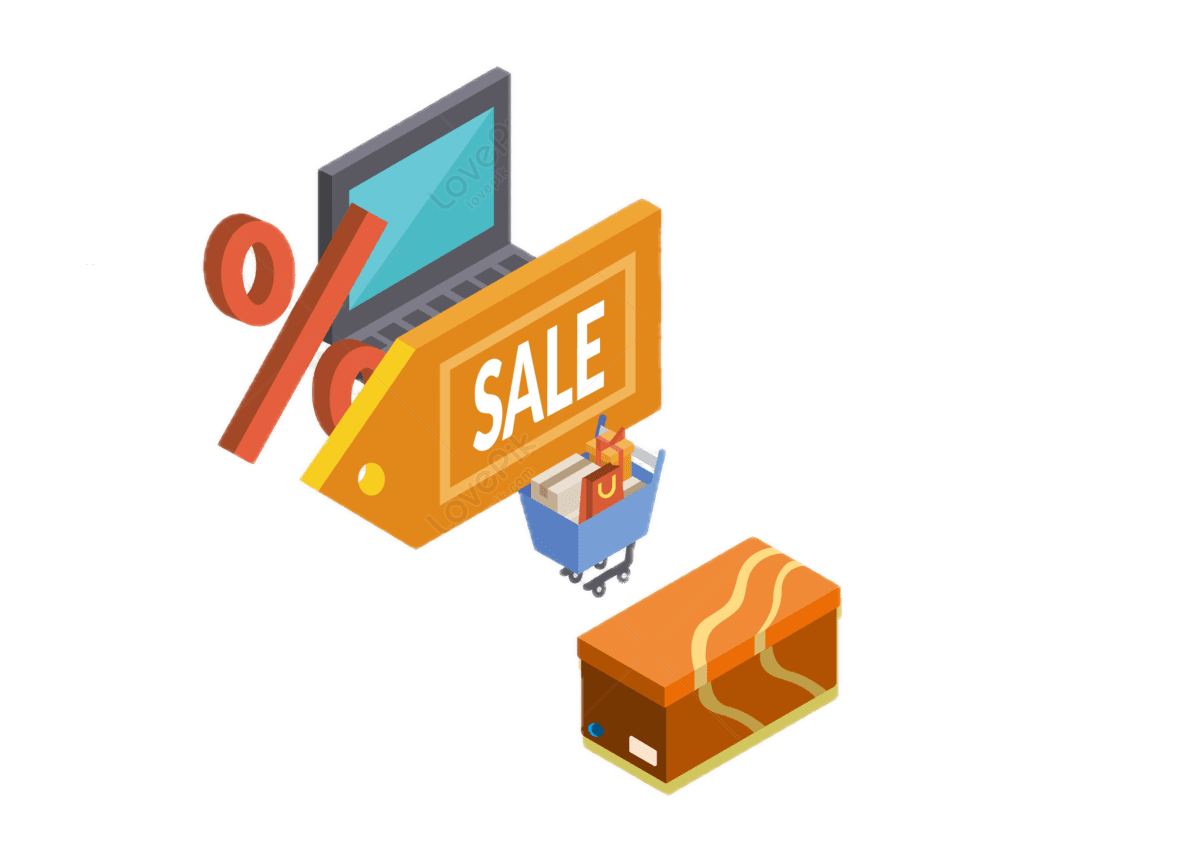
Merchandise Relationship Management:
Merchandise Relationship Management in the B2B retail operations space involves managing relationships between retailers and their suppliers or manufacturers regarding the selection, procurement, distribution, and presentation of merchandise. This encompasses activities such as product sourcing, pricing negotiations, inventory management, and supplier collaboration. This function is critical for ensuring a well-curated and profitable product assortment in retail, but it can be challenging due to the complexity of product categories, diverse supplier networks, and the need for real-time data exchange and coordination.
Salesforce can play a pivotal role in addressing challenges when it comes to managing merchandising efforts. Salesforce can be used to centralize supplier and product information, allowing retailers to efficiently manage relationships and contracts. Salesforce’s integration capabilities can connect with supplier systems for seamless data exchange, ensuring up-to-date inventory and pricing information. Saleseforce’s core platform, leveraging capabilities from Sales Cloud and Service Cloud, can enable sales associates to keep track of planograms and compliance from store-to-store, as well as submit requests for maintenance. By building an Experience Cloud portal on top of Sales & Service Cloud, retailers can give access to their vendors and exchange real-time insights into merchandising data, including photo proof of planogram compliance. Additionally, Salesforce’s CRM Analytics can provide additional insights for both retailers and their vendors into product performance and demand trends, aiding in merchandise planning and optimizing the product mix. By leveraging these Salesforce solutions, companies can streamline their Merchandise Relationship Management processes, enhancing collaboration with suppliers, optimizing product assortment, and ultimately driving sales and profitability in the B2B retail sector.
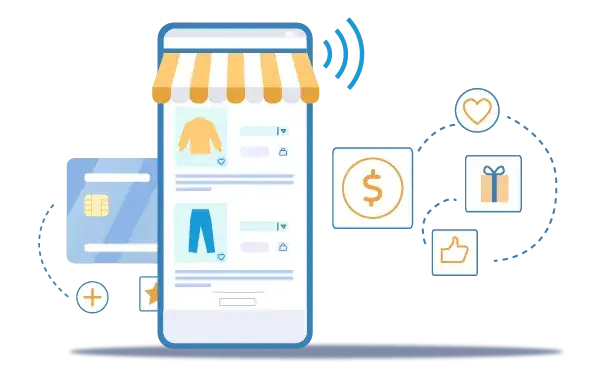
Rebate Management:
Rebate Management involves the tracking, calculation, and management of various types of rebates, discounts, and incentives that companies offer to their business customers, suppliers, or partners. These rebates can be based on various criteria, such as volume of purchases, contract terms, or performance metrics. Managing rebate programs can be complex due to the need to accurately calculate and distribute rebates, monitor compliance, and ensure transparency in financial transactions. This complexity is exacerbated when dealing with a large number of customers or partners, making Rebate Management a challenging aspect of B2B retail operations.
Salesforce offers solutions that can help streamline Rebate Management processes. Salesforce’s core CRM platform can serve as a central repository for rebate-related data, including contract terms, purchase history, and rebate calculations. Salesforce’s automation capabilities can be used to calculate rebates accurately, reducing the risk of errors and disputes. Additionally, Salesforce’s reporting and analytics tools, like CRM Analytics and Tableau, can provide insights into rebate program performance, allowing companies to optimize their incentive programs and ensure that they align with their strategic objectives. By leveraging these Salesforce products, retailers can simplify Rebate Management, improve accuracy, and enhance transparency in financial transactions, ultimately strengthening relationships with their business customers and partners.

The Value of a Strategic Salesforce Partner
Configuring Salesforce for B2B retail operations is not a one-size-fits-all endeavor. It requires industry-specific knowledge and a deep understanding of your unique business processes. A strategic Salesforce implementation partner can:
- Design Industry-First Configurations: They will tailor Salesforce to your industry’s specific needs, ensuring that it aligns with your operational processes.
- Optimize User Adoption: A well-designed Salesforce implementation is more likely to be embraced by your team, increasing user adoption rates and overall productivity.
- Facilitate Change Management: Implementing Salesforce often involves changes to existing workflows and processes. A strategic partner can help manage this transition effectively, reducing resistance to change.
- Ensure Long-Term Success: They will provide ongoing support, training, and optimization to ensure that Salesforce continues to meet your evolving needs.
Salesforce may not be the obvious first choice for powering a B2B retail operations team, but if your company is already using Salesforce in other areas of the business, and the idea of having a centralized source of truth sounds appealing, Salesforce can be configured to meet your exact business processes and the benefits start to add up quickly because of how stable and secure the platform is. The most innovative retailers are turning to Salesforce and strategic partners like V2 to support their B2B retail operations, acknowledging that Salesforce is more than a CRM, but really a scalable platform across Sales, Service, Marketing, Commerce, Analytics, and more.
In order to realize this kind of value from Salesforce, you will need a partner that understands the complexities of your industry and can help you overcome complexity and achieve efficiency and growth.
Building Trust Starts With A Conversation.
To explore how V2 Strategic Advisors can help you design a Salesforce solution tailored to your exact B2B needs, please reach out and connect with us.
Contact us today to start the conversation and embark on a journey toward a more streamlined and successful future in B2B retail operations.

